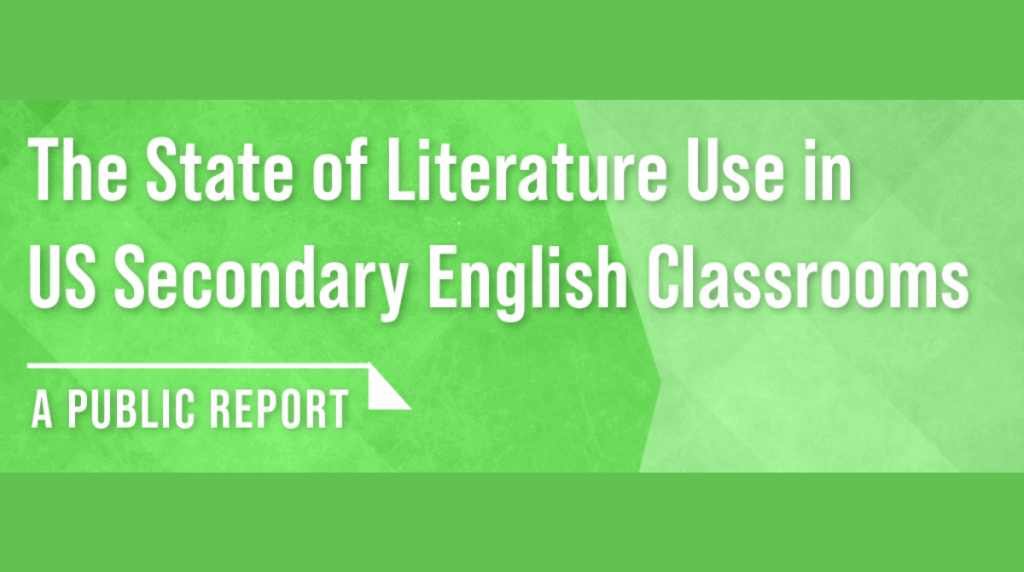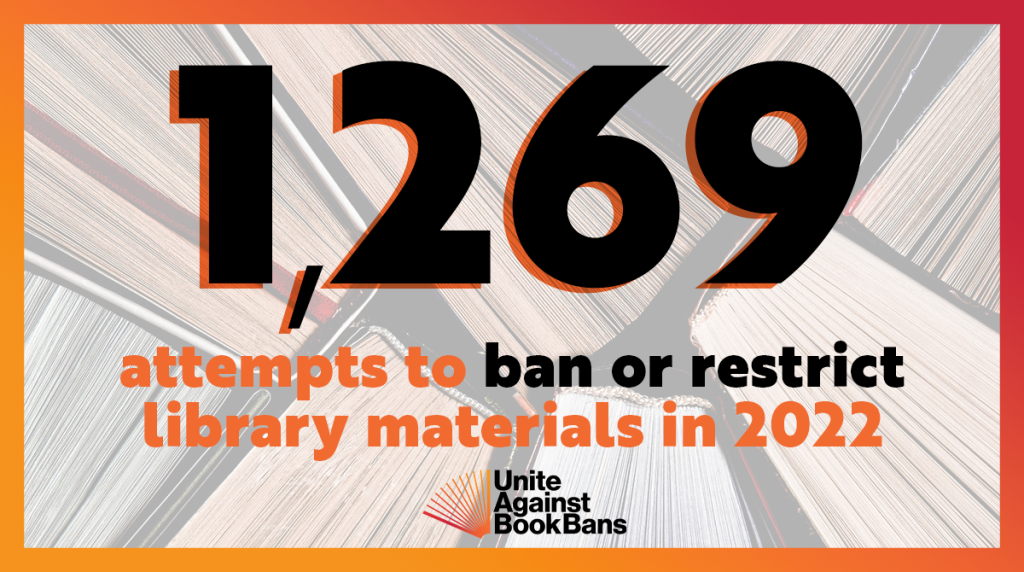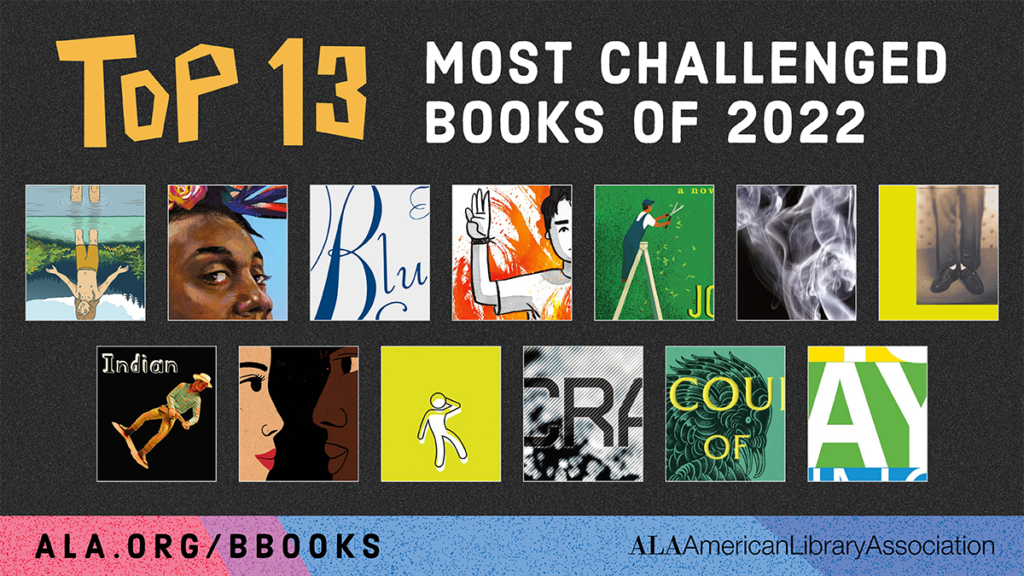This blog post is from Sarah Miller, Senior Manager of Book Initiatives and Intellectual Freedom at the National Council of Teachers of English (NCTE), a Unite Against Book Bans partner.
Understanding Classroom Realities Amid Record-Breaking Censorship
Even for those steeped in the flood of research, data, and anecdotal stories about this current wave of book censorship, it has been difficult to discern the realities of what today’s educators are teaching and facing in the classroom. To address this gap, the National Council of Teachers of English (NCTE) recently released survey data from nearly 4,100 secondary English language arts (ELA) public school teachers from all 50 states.
Published in July 2025, The State of Literature Use in US Secondary English Classrooms is the first study to survey a large population of current US secondary (grades 6–12) ELA public school teachers on their literature use, curricular autonomy, diverse book inclusion, and censorship perspectives. The last large-scale national study on literature use in the classroom was published by Arthur Applebee in 1989.
New Research Shows Little Change in Classroom Curriculums
What researchers discovered is that the most frequently taught books in modern-day classrooms have barely changed in the past 35 years. Going back further, to a survey of books taught in the 1960s, the researchers found there was more change from the ’60s to the ’80s than there was from the ’80s to the 2020s.
The 10 books that today’s teachers said they use most were all written by white authors, mostly men, and published more than 60 years ago. That includes the top five titles: Romeo and Juliet, The Great Gatsby, The Crucible, Macbeth, and Of Mice and Men.
The research reveals that despite persistent claims that radical ideas are supplanting “classic” education – claims designed and perpetuated specifically to justify book bans – in practice, a large majority of classrooms focus on the same canonical texts that students’ parents and grandparents read in school.
Researchers also asked teachers which books are censored most often, by whom, and for what reason. Teachers additionally shared about their autonomy – or lack thereof – in selecting texts for their classrooms.
Using The State of Literature to Advocate for Educators’ Expertise and Autonomy
This report is especially useful for teachers, researchers, librarians, and education and literary advocates and leaders. It contains a wealth of data along with recommendations to inform future policymaking and discussions around education practices. And it points to how much work remains to be done in updating literature used in the classroom to provide access to more modern texts that are likely to build a love of reading across a lifetime.
According to our research, more than nine in 10 teachers value diverse texts, regardless of demographic or political perspective. Many say they are interested in doing more to introduce these topics and books to their students. Yet they don’t always feel equipped or comfortable in doing so.
To Best Serve Students, Teachers Need Our Continued Support
One in three teachers said they are affected by a scripted curriculum, further limiting their influence on book selection and use. Even when teachers had more autonomy, they still reported a lack of knowledge about covering diverse topics through books or simply chose not to include the books in their current curriculum.
Teachers need more support to incorporate texts that are essential to developing students’ reading, writing and critical thinking skills and helping them make sense of our complex world and the human experience. NCTE is prepared to continue this work with educators, and we appreciate that many of you are, as well.
For more about what you can do to support educators in your community, see the Guide to Attending Library and School Board Meetings provided by PFLAG, a Unite Against Book Bans partner.



